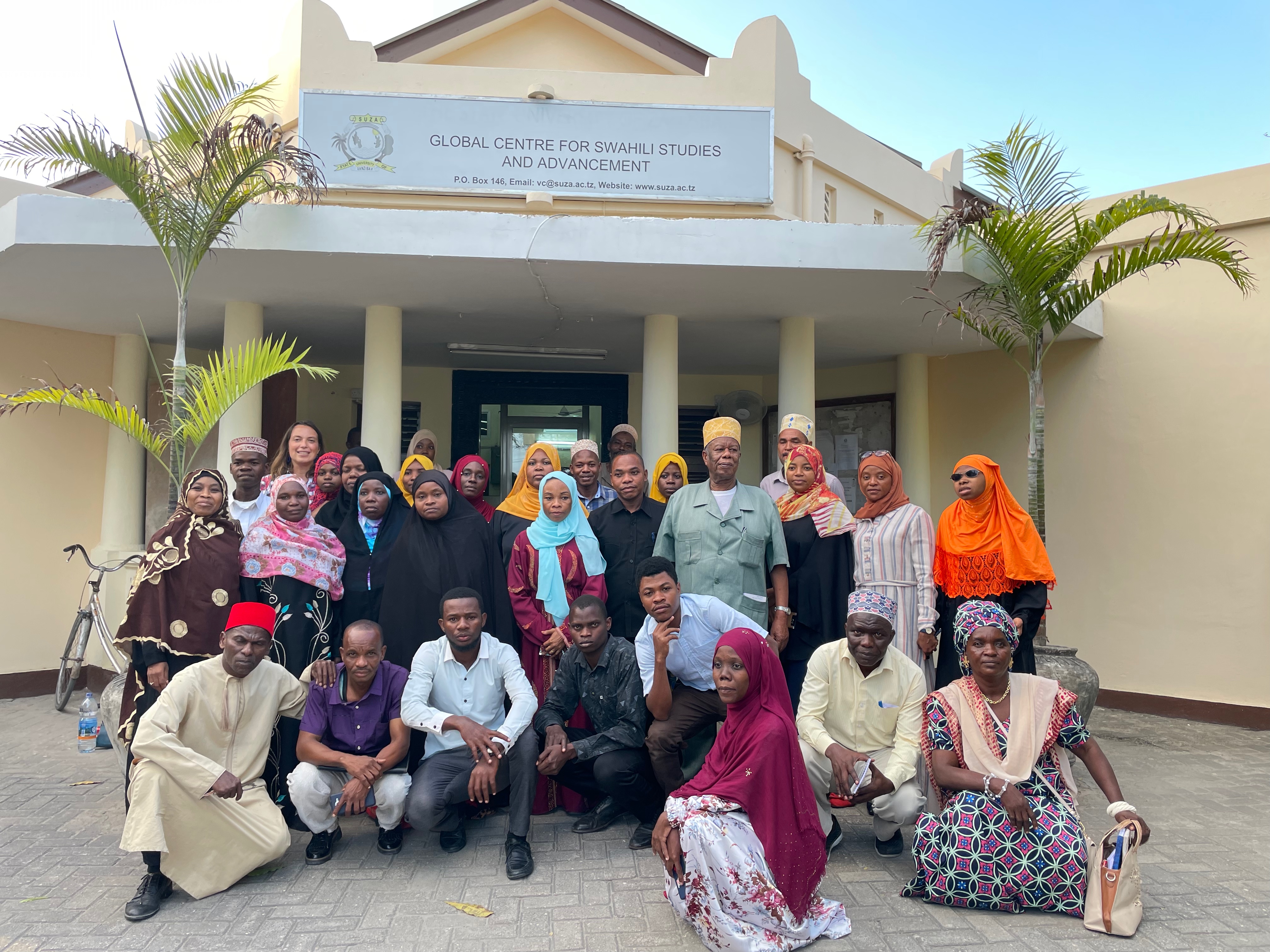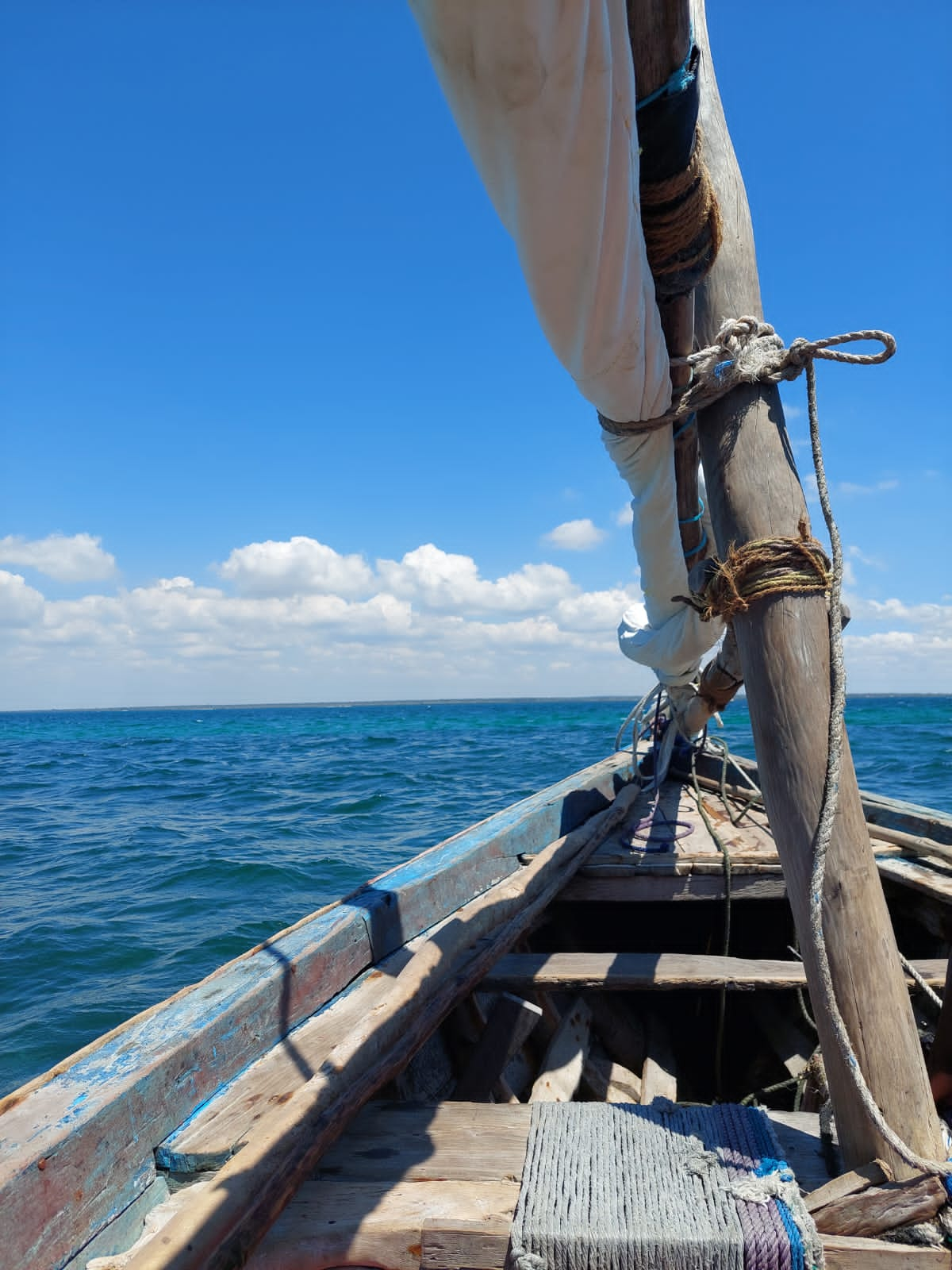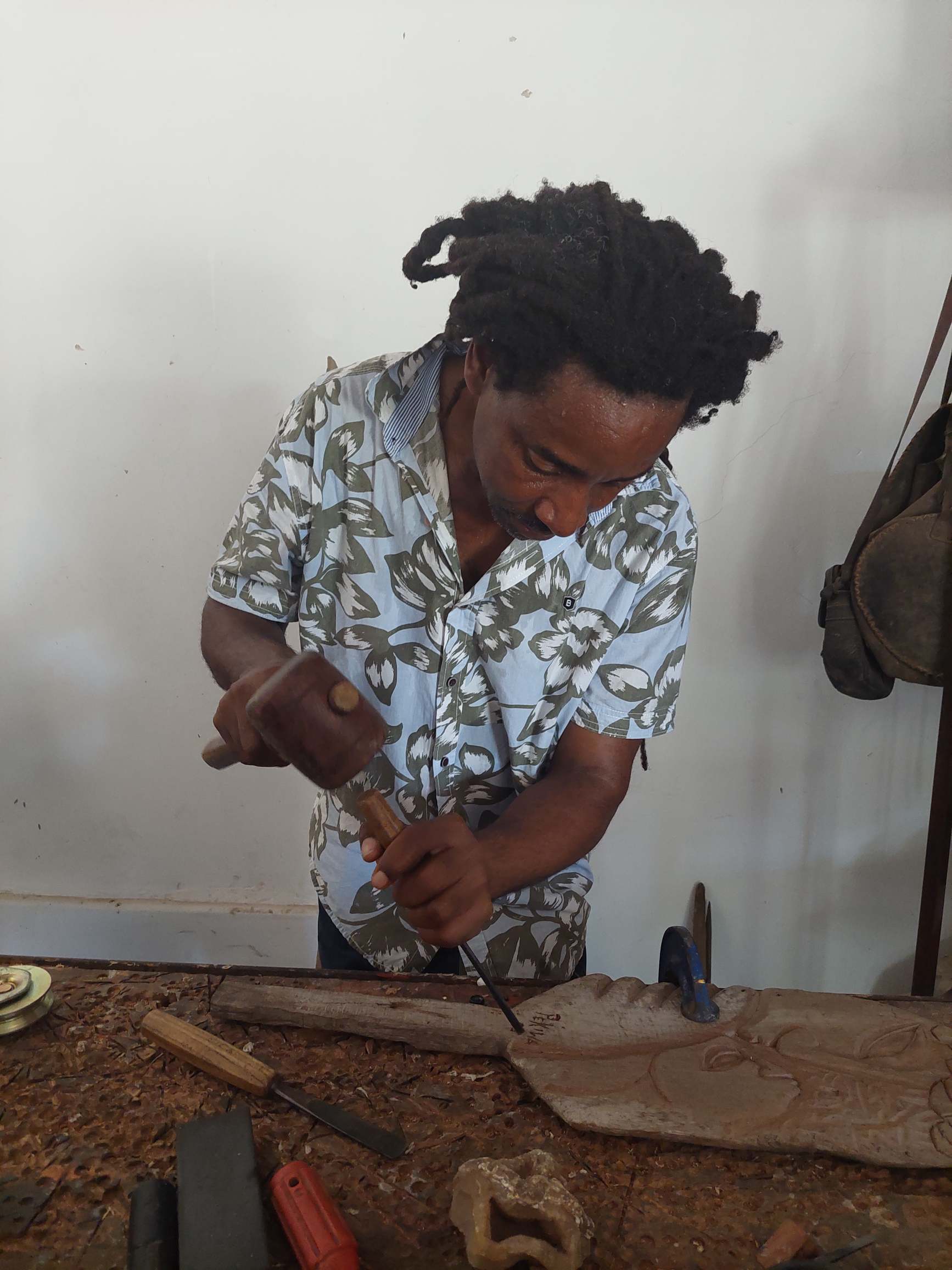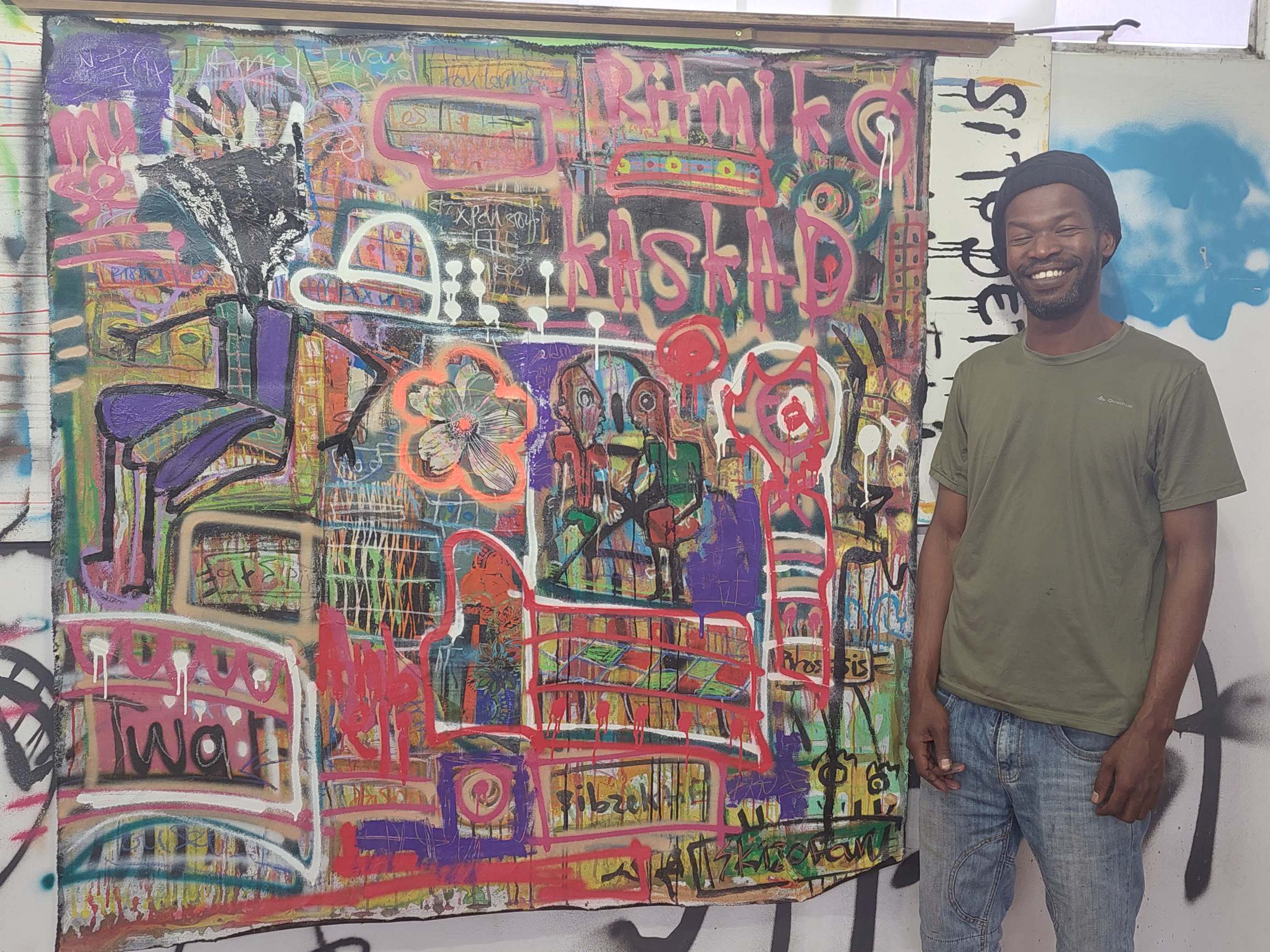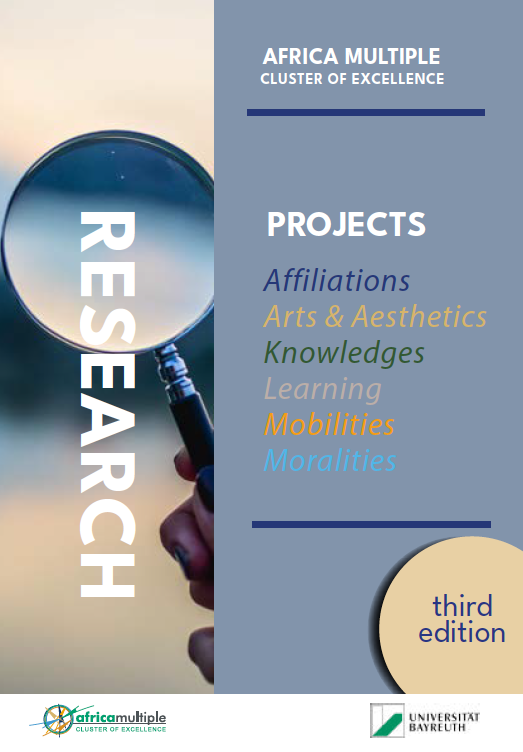Multiple Artworks - Multiple Indian Ocean
-
Research Section: Arts and Aesthetics
-
Project duration: 01.08.2019 - 31.07.2023
Summary
The project focuses on the multi-layered co-presence and circulation of verbal arts in relation to narratives, imagery, and sound travelling the Indian Ocean. In line with the Cluster’s agenda of multiplicity, we do not conceive of literary works as neatly delineated units, but as internally multiple and dynamic configurations in relation to other literary works and artworks. Taking into account networks of literary multilingualism and going beyond the monolingual straitjacket of modern literary histories and disciplinary boundaries that partition Luso- and Francophone literature from Swahili and Arabic, we adopt a multi-sited and multilingual approach. Bringing in our joint competences, we firstly, focus on the multilingual (foremost English, French, Portuguese, Swahili and Arabic) and multimedial practices of authors, the dynamic configuration of imagery, narratives and sounds in specific works and their relationship to other media and art forms (foremost film, music, installation). Our joint project focuses on the Indian Ocean, which lends itself to theorize artworks as multiple configurations that inhabit many worlds, which do not belong to one timeline, space, language and medium. Our project brings together three fields of inquiry, i.e. 1) recent multilingual approaches to circulating literatures; 2) Indian Ocean Studies and its emphasis on fluid connections, and 3) aesthetic approaches to consider the specific ways of the arts to evoke worlds.
Key Questions
Our main question, which speaks to the Research Section’s interest in practices of worlding, is: Which multiple world(s) do literature and other artworks inhabit, imagine and construct and critically deconstruct? Furthermore, how can one think of artworks relationally by considering the multiple layers and traces of various languages, imageries and narratives beyond unilineal diffusion? How do artworks reshape political boundaries of worlds by conveying an experience of alternative worlds? How do artists and artworks of the Indian Ocean relate to other artists and artworks, for instance, from India or Oman, as well as the Caribbean? What are the intermedial connections between literary and performative, musical, and/ or audiovisual aesthetics?
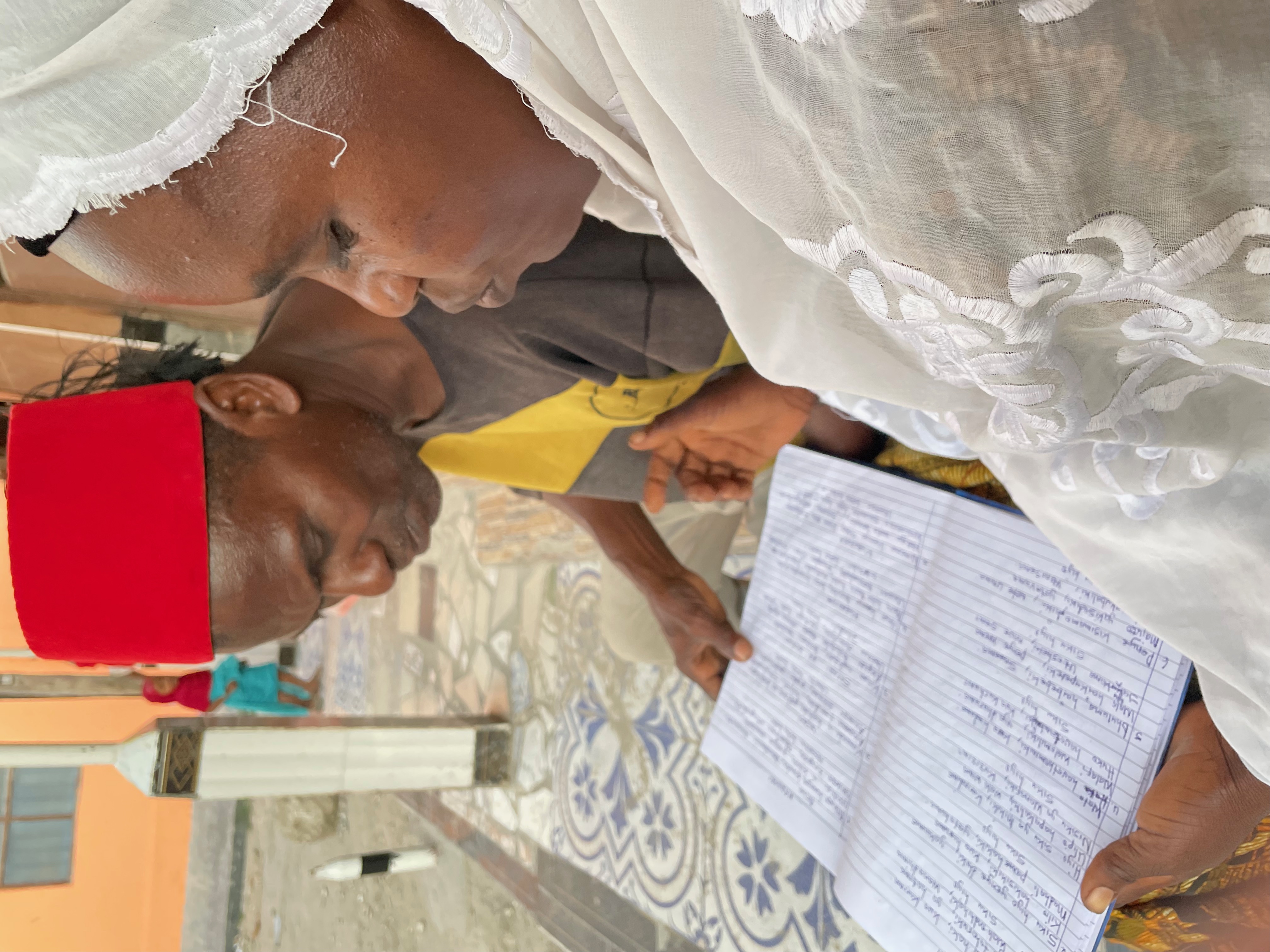
Poets Wanimo B. Wanimo (left) and Jalala Sikudhani (right) discussing poetry on Zanzibar. (Photo: Clarissa Vierke)
Methods, Case Studies and Concepts
We combine fieldwork methods of participatory observation to find out about locally entrenched poetic practices with interviews with writers and artists. The latter allows us to inquire about their repertoires, perception of textual relations, and worlds, as well as to expand on the intellectual concepts that inspire and engage them (e.g. relationality (Glissant), “coolitude” (see Bragard 2008, Carter and Torabully 2002). Furthermore, we have also systematically created encounters of writers and artists, as for instance, during workshops like the one in october 2022 in Mauritius “Naviguer le tout-monde de l’Océan Indien : poétiques relationnelles entre écritures et arts visuels” (“Navigating the All-World of the Indian Ocean: relational poetics between writing and visual arts”)
The project is subdivided into three case studies conducted at different sites, the Comoros, Mozambique, Mauritius, La Réunion, Zanzibar and Oman with outlooks to India (Goa), Oman and Europe (France) to deliberately transgress linguistic, national, and continental frontiers. We bring to the overall project our individual research on a variety of lusophone and francophone literatures in relation with other media (Fendler), francophone novels (Tchokothe) and swahiliphone and Arabic poetry (Vierke and Tarrant). While each case study is in itself multi-sided, we draw on the contrast of the sites and their different histories of relations and forms of expression.
Rémi Tchokothe’s research which he entitles “Entré en tant que cousin, sorti en tant que gendarme” Visa Balladur, Kwassa Kwassa, (Im)mobilité et Géopoét(h)ique relationnelle aux Comores” lies at the intersection of Europe-Africa political geography, Indian Ocean Francophone Literatures, and Critical African Studies. It builds on 18 works cutting across 5 genres to analyse literary actualizations and representations of notions of territory as they play out in the Comoros archipelago by asking this central question: how can works of imagination on “migration” to Mayotte build a kind of collective social therapy and social in(ter)vention?
Duncan Tarrant and Clarissa Vierke have been examining transoceanic memories and shifting notions of oceanic space in Swahili popular poetry on Zanzibar working with a group of over 20 poets. Research by Duncan Tarrant focussing on the relationship of Swahili poetry in Zanzibar and Oman, entangled through back and forth migration, has engendered new questions about diasporic identities adding to Clarissa Vierke’s research on layered poetic maps. The poetry recently composed by Zanzibari poets for a workshop organized with the Zanzibar State University points at the capitalist entanglements of cultural production, hints at moments of forgetting and stasis but also adds ecocritical aspects, and demands a critical revisit of Indian Ocean perspectives.
Ute Fendler’s work focuses on literary texts and art works (paintings, films, installations, and sculptures) from La Réunion, Mauritius, and Mozambique. Using the concepts of relationality and polyrhythm, historically genetic and thematic interconnections allow to seize the outlines of thematic fields that are part of a shared imaginary, like imaginaries on the memories of enslaved persons and indentured laborers, on complex oceanic relations in a multidirectional diachronic and multidirectional synchronic perspectives. The overall objective would ask for a – partially – shared relational poetics.
Vision
Our aim is to break through the monolingual straightjacket and dominant canon of Indian Ocean literature and contribute a relational and multilingual perspective on the Indian Ocean. The choice of the Indian Ocean speaks to the Cluster’s agenda of reconfiguring African studies as well as relationality, since it critically questions the boundaries of the African continent by opening up the view on multidirectional relations in a diachronic and synchronic perspective – which also reject the West as the only centre. Furthermore, the project brings in a genuinely aesthetic perspective to reflexivity by focusing on artists and artworks’ contingent, discursive and non-discursive way of criticising social realities and evoking alternative worlds. In this way, literature becomes a major critical tool which generates new perspectives, concepts and questions. Questioning our own positionalities and restricted views, we have systematically expanded the cooperation with local poets and writers but also guests and artists in Bayreuth, creating productive/ dynamic moments of encounter.
Key References
Fendler, Ute. “Hacia una ‘tercera-estética - Ecos polirrítmicos Sur-Sur en novelas antillanas e africanas.” In: Ineke Phaf-Rheinberger/Daiana Nascimentos dos Santos/Koichi Hagimoto (eds.): Más allá de la Línea – Convergencias, enfrentamientos y cruces en las culturas ibéricas. 2022, 29–56.
Elena Brugioni/Ute Fendler: “Islands, Theory and the Postcolonial Environment: Reading the Work of Khal Torabully.” In: Portuguese Studies Vol. 37, N°2, 2021, 165–177, https://doi.org/10.5699/portstudies.37.2.0165 .
Fendler, Ute. “Métamorphoses: les spectres des frontières”. In: Margot Brink (éd.): Dossier : Les frontières d’Europe dans l’océan Indien : Interventions littéraires, artistiques et scientifiques dans le conflit autour de Mayotte,” Lendemains 178/179, 2020, 14–23.
Vierke, Clarissa 2022. An Intimate “Range of Elsewhere”: Sensuous Imaginaries of the Indian Ocean in Precolonial Swahili Poetry . Comparative Literature (2022) 74 (2): 156–170.
Kresse, Kai and Clarissa Vierke. 2022. Swahili language and literature as resources for Indian Ocean studies. History Compass (2022): 1–14. DOI: 10.1111/hic3.12725
Clarissa Vierke and Annachiara Raia. 2020. (eds.). Texts Travelling Beyond the West. Special Issue. Asian Journal of African Studies (48): 1–30.
Tchokothe, Rémi 2022. (ed.) Just… Doing African Comparative LiteratureS. Stichproben 42, Vienna Journal of African Studies (in print)
Tchokothe, Rémi. 2022. “Le Franç(h)ais en Mode DésappartenUance dans Les Démons de l’Aube“. In : Le français et ses usages dans l’espace francophone. Créativités langagières et identités socio-discursives. En Hommage à Musanji Mwatha Ngalasso, Professeur émérite à l’université Bordeaux Montaigne. Barry, Alpha & Chadli, Yamna Abdelkader (dirs.). Presses Universitaires de Bordeaux : Bordeaux. 405–416.
Tchokothe, Rémi. 2021. “Mariama Bâ et Djaïli Amadou Amal: Une si Longue Lettre des (Im)patientes.”, Hybrida 2, 201–224, https://doi.org/10.7203/HYBRIDA.2.20603
Project Team
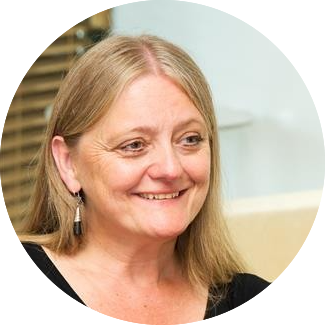
Prof. Dr. Ute Fendler
Principal Investigator
Chair Romance and Comparative Literature
University of Bayreuth
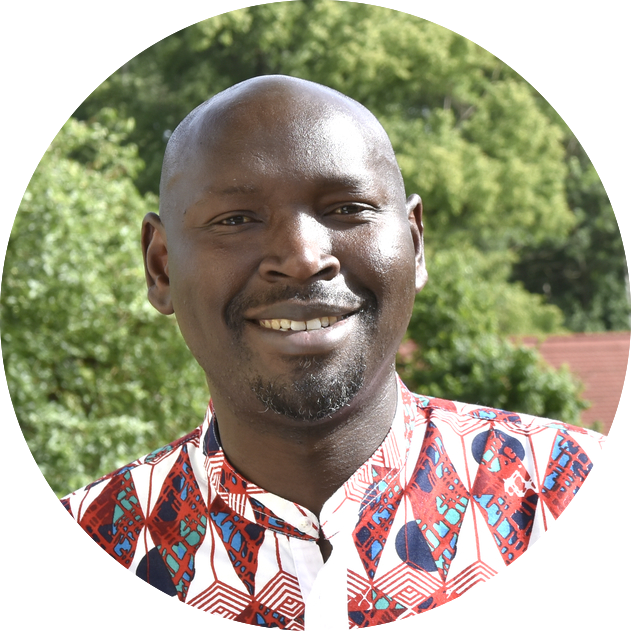
Prof. Dr. Habil Rémi Tchokothe
Comparative Literature with a focus on African Literatures
University of Vienna
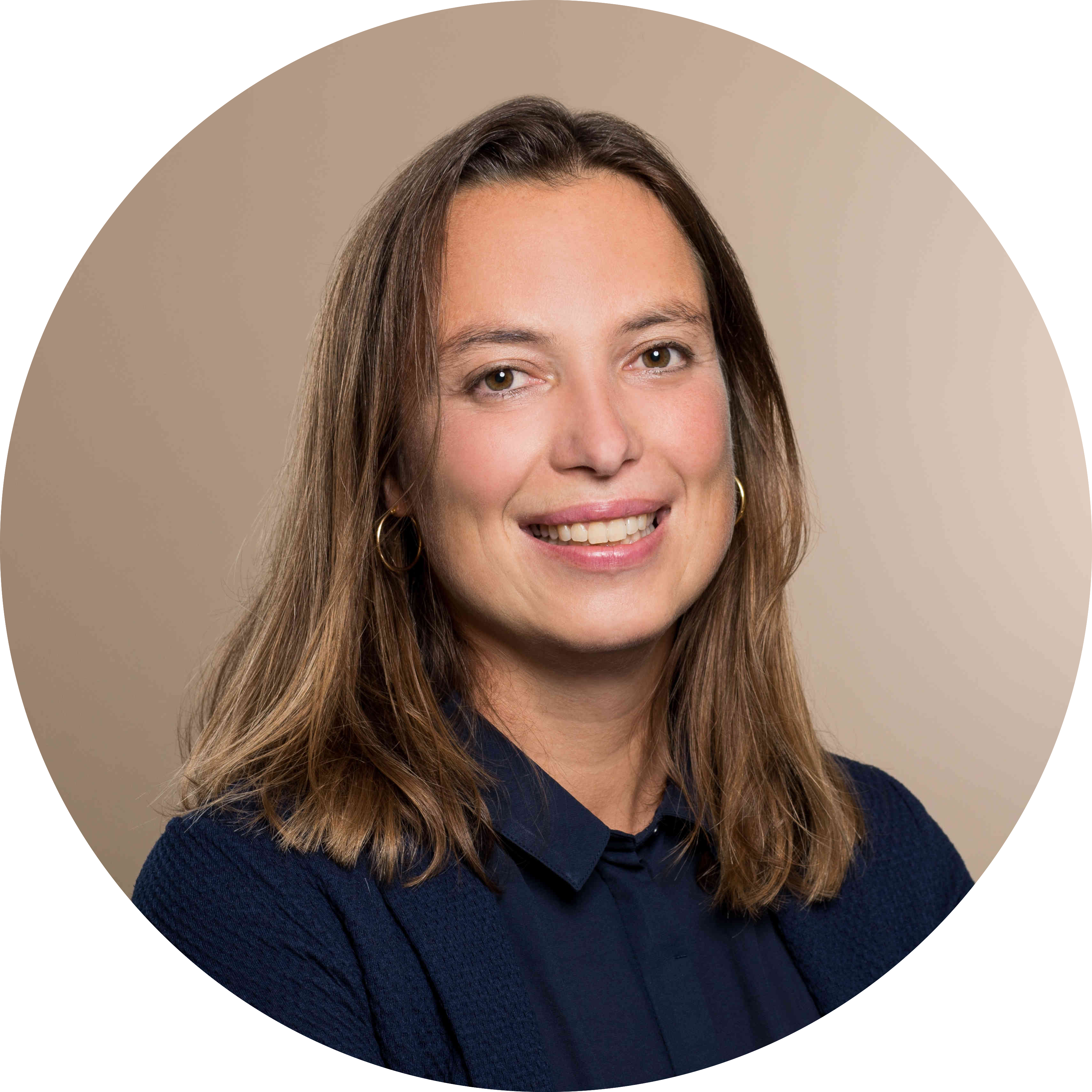
Prof. Dr. Clarissa Vierke
Principal Investigator
Literatures in African Languages
University of Bayreuth

Duncan Tarrant
PHD Fellow
Literatures in African Languages
University of Bayreuth
Further Links
- Find more information on the project here:
Research Team
Summary
The project focuses on the multi-layered co-presence and circulation of verbal arts in relation to narratives, imagery, and sound travelling the Indian Ocean. In line with the cluster’s agenda of multiplicity, we do not conceive of literary works as neatly delineated units, but as internally multiple and dynamic configurations in relation to other literary works and artworks. Taking into account networks of literary multilingualism and going beyond the monolingual straitjacket of modern literary histories and disciplinary boundaries that partition Luso- and Francophone literature from Swahili and Arabic, we adopt a multi-sited and multilingual approach. Bringing in our joint competences, we aim to, firstly, focus on the multilingual (foremost French, Portuguese, Swahili and Arabic) and multimedial practices of authors, the dynamic configuration of imagery, narratives and sounds in specific works and their relationship to other media and art forms (foremost film, music, installation). Secondly, beyond any dichotomy of centre and periphery, we follow the circulation of sounds, imagery and narratives across our sites of research (foremost Comoros, Mozambique, Mauritius, La Réunion, Zanzibar and Oman) to view the entanglements and co-constitution of French, Portuguese and Swahili literary productions. Our main question, which speaks to the Research Section’s interest in practices of worlding, is: Which multiple world(s) do literature and other artworks inhabit, imagine and construct? Our joint project focuses on the Indian Ocean, which lends itself to theorize artworks as multiple configurations that inhabit many worlds, which do not belong to one timeline, space, language and medium. At the same time, through an aesthetic approach, we will take previous debates in Indian Ocean studies as well as postcolonial studies further.
Activities and Events
- Lecture Musicale by Raharimanana: "Les îles témoins et les mémoires tissées" - 08.12.2021Hide
-
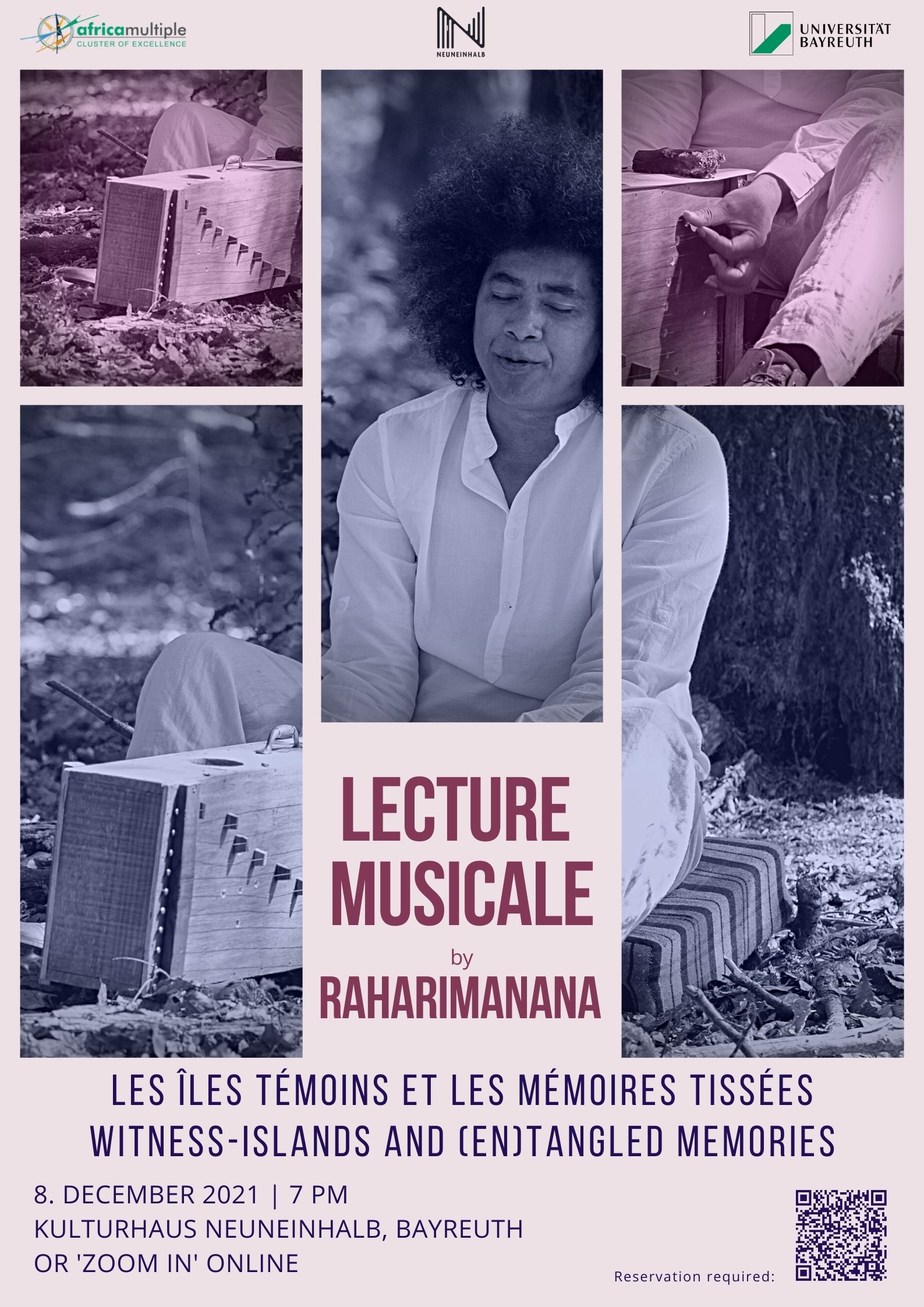
From the movements of the worlds, the islands were formed. Convergence of currents. Utopia of the breaths. Raharimanana is aware of the influx of sources in him. Multiple origins, Africa, Asia, the West. An archipelagic identity where history is sometimes violent, but culture always heals and restores.
To find more information, please click here.
- Cinema Africa 2021: "'Binti', Tanzania, 2020" - 17.11.2021Hide
-
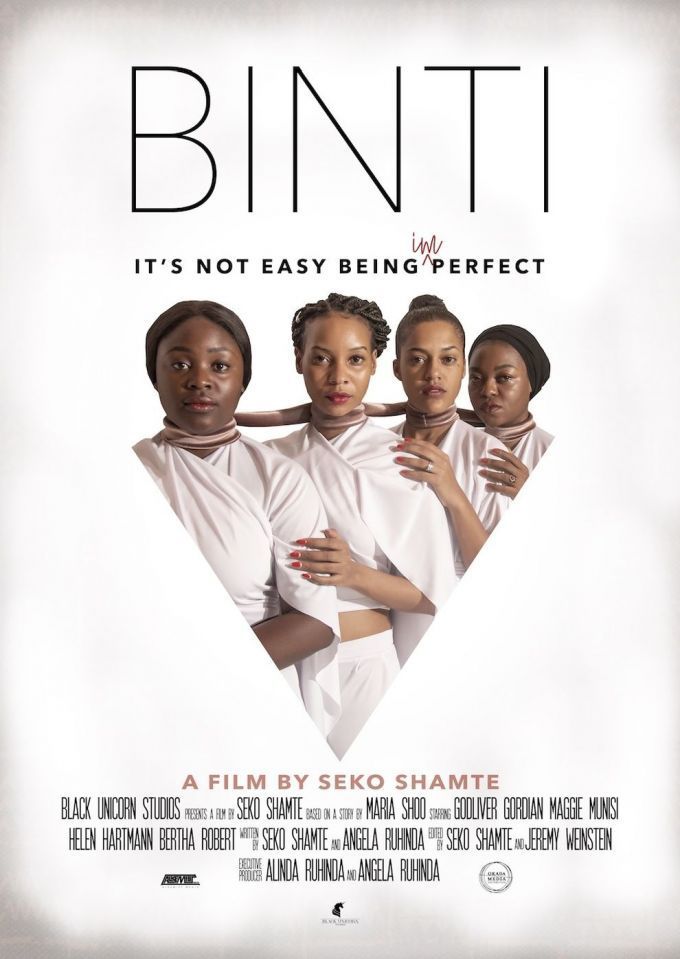
Year: 2021
Runtime: 105 min
Language: English/Swahili"Binti" ("daughter", "young woman") is the most recent film of Tanzanian filmmaker Seko Shamte. The movie tells the story of four women with very different careers, desires and social backgrounds in Dar es Salaam. The film slowly and intricately interweaves their respective perspectives. The all-women team consisting of internationally renowned filmmaker Seko Shamte and the producers Angela and Ailinda Rhinda have created one of the few movies that shows a kaleidoscope of women’s lives in East Africa.
To find more information, please click here.
- Cinema Africa 2021: "'The Comeback – A Tale of Irrelevance', Mauritius/India 2020" - 16.11.2021 Hide
-
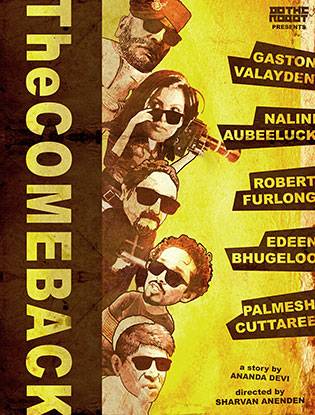
Year: 2020
Runtime: 100 min
Language: EnglishIn this comedy, director Sharvan Anenden follows three forgotten Bollywood movie stars who try to make a comeback by kidnapping a current superstar during a shooting in Mauritius. They get help from a young woman who herself is aspiring to become a film director.
To find more information, please click here.
- Cinema Africa 2021: "'Mayfair', South Africa, 2018" - 15.11.2021Hide
-
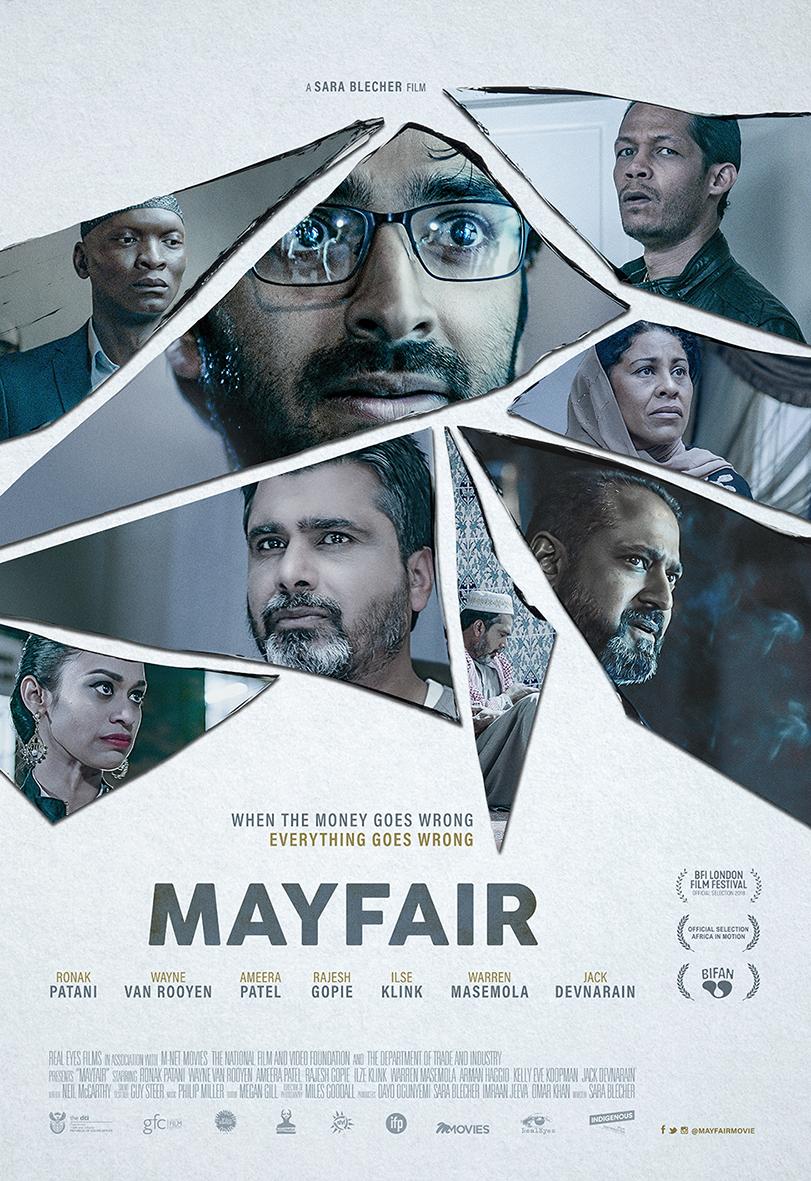
Year: 2018
Runtime: 91 min
Language: EnglishMayfair is a 2018 South African Indian action crime drama film written by Neil McCarthy and directed by Sara Blecher. Set in Johannesburg, the movie tells the story of an estranged son who must break the rules to save his family and their criminal empire, when his overbearing father falters.
To find more information, please click here.
- Cinema Africa 2021: "'Maudit!', La Réunion 2021 und 'Sac la mort', La Réunion/France, 2015" - 14.11.2021Hide
-
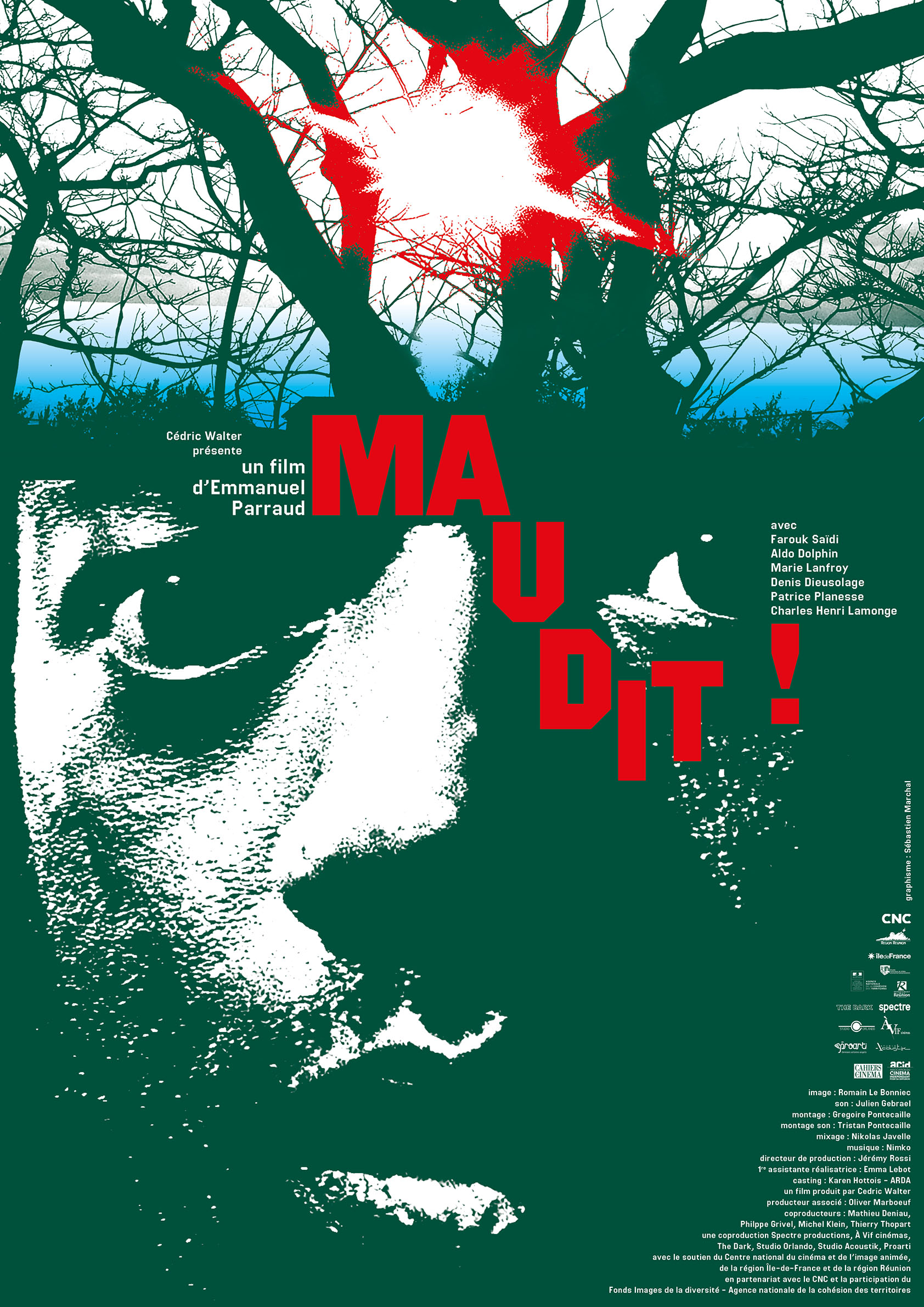
Maudit!
Year: 2019
Runtime: 70 min
Language: FrenchIn Maudit!, the main character Alix searches for his missing friend in the wilderness of La Réunion. Director Emmanuel Parraud invokes the past of an island that has known colonialism, indenture labour and slavery sending his audience on a tightrope walk between mysticism and harsh reality. Maudit! is an allegory on the repression of the island’s history that shows how violence and alcohol sometimes cover a weight that has been ignored for too long.
Sac la mort
Year: 2015
Runtime: 78 minUpon his return from France to La Réunion protagonist Patrice first loses his brother, then his house. While contemplating revenge Patrice has to try hard to find another home and keep his mind. With “Sac la mort” director Emmanuel Parraud has created a social drama with intricate narrative levels telling of the realities of modern day La Réunion.
To find more information, please click here.
- "Intermedial Indian Ocean"Hide
-
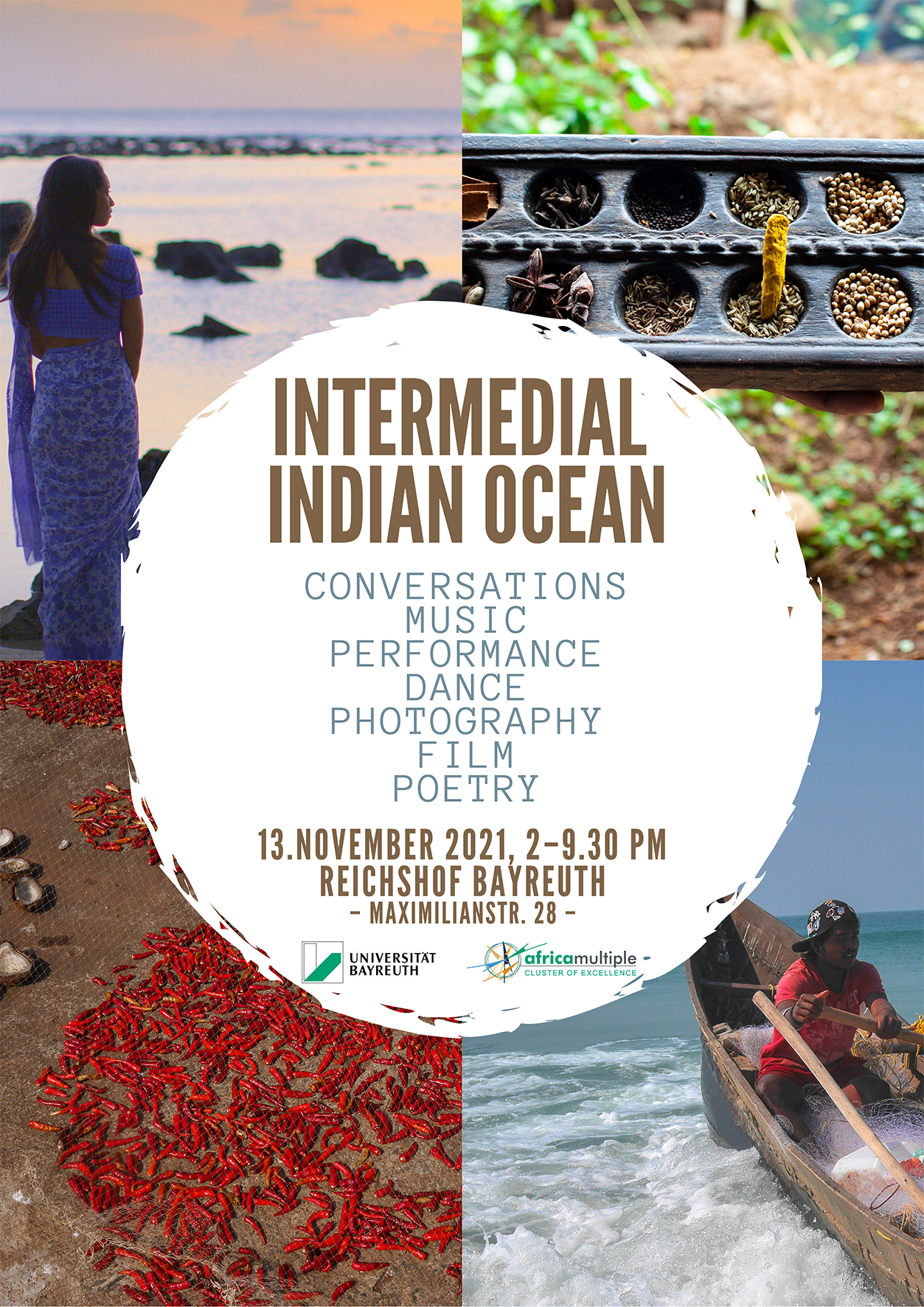
Prof. Dr. Ute Fendler and Prof. Dr. Clarissa Vierke invite the interested public to an exciting and eventful day dedicated to the Indian Ocean. Music, films, dances, photographs and poetry will transport the audience to the East African region, whose artistic and medial forms of expression are often shaped by the beautiful landscape and maritime lifestyle in which they were created.
To find more information, please click here.


